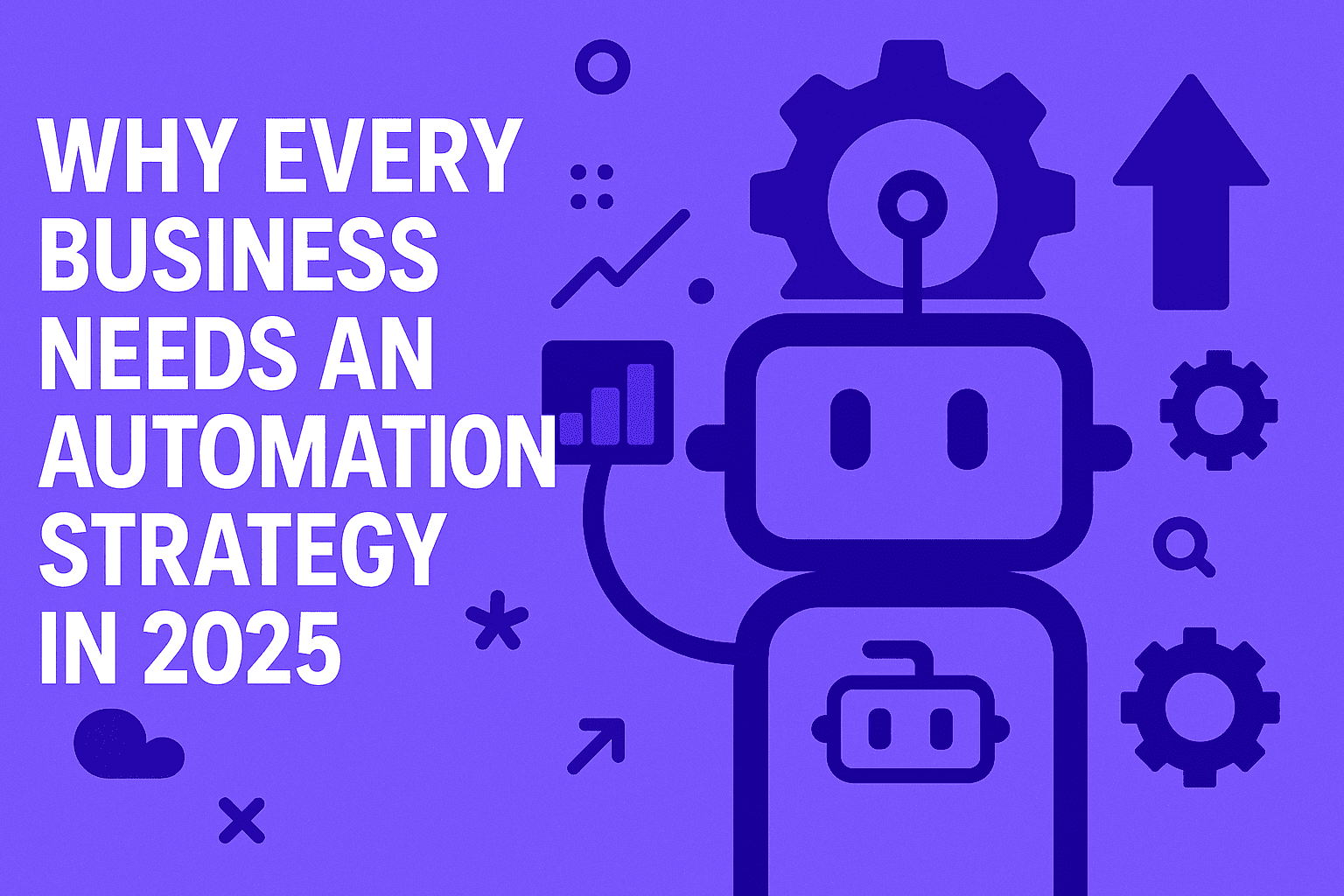Why Every Business Needs an Automation Strategy in 2025

In 2025, automation is no longer a competitive edge, it’s a survival tool. As AI, machine learning, and robotic process automation (RPA) technologies continue to evolve, companies that lack a clear automation strategy risk falling behind. Whether you’re a small business owner or leading a global enterprise, the ability to streamline operations, reduce manual workloads, and scale faster has become mission-critical.
The Evolution of Business Automation
The automation journey has transformed dramatically over the last decade. What began as basic workflow automation in finance or customer support has matured into AI-powered agents capable of making decisions, responding to customer inquiries, and even managing other automations.
In 2025, automation is more intelligent, integrated, and accessible than ever before. The rise of no-code platforms and AI agent builders has democratized automation, enabling non-technical teams to implement powerful solutions without waiting on IT.
Why Businesses Need an Automation Strategy Now
1. Increased Efficiency and Cost Savings
An automation strategy helps identify repetitive tasks that can be handled by bots or AI agents, significantly cutting labor costs and operational delays. Businesses that automate can reallocate human talent to more strategic and creative tasks.
2. Enhanced Customer Experience
Speed and personalization are now the gold standard. AI-driven automation can provide instant support, smart recommendations, and seamless experiences across channels, all of which drive customer satisfaction and loyalty.
3. Scalability and Agility
With the right automation strategy, businesses can adapt quickly to demand spikes, enter new markets faster, and pivot operations with minimal disruption. This agility is vital in a volatile global economy.
4. Data-Driven Decision Making
Automated workflows often include built-in analytics and insights. These provide real-time data that leaders can use to make faster, more informed decisions.
5. Future-Proofing the Business
The pace of innovation is accelerating. Organizations that embed automation into their core operations are better positioned to integrate future technologies and stay ahead of competitors.
How to Start Building Your Automation Strategy
- Audit Your Processes: Identify repetitive, rule-based tasks ripe for automation.
- Set Clear Goals: Whether it’s reducing errors, improving response times, or scaling operations, define what success looks like.
- Choose the Right Tools: Look for platforms that are user-friendly, scalable, and integrate well with your existing systems.
- Train and Involve Your Team: Bring your staff along the journey. Empower them with training and tools to create their own automations.
- Iterate and Optimize: Start small, measure impact, and continuously refine your strategy.
Embracing the Future with Confidence
As we move deeper into the AI era, having a well-defined automation strategy is no longer optional. It’s the backbone of modern business resilience and growth. Whether you’re looking to improve internal efficiency or deliver standout customer experiences, automation is the key.
Platforms like YooBot make it easy to start. With intuitive AI agent builders, no-code automation tools, and seamless integrations, YooBot empowers businesses to craft smart automation strategies without needing a team of developers.
Ready to future-proof your business? Start building your automation strategy today with YooBot.